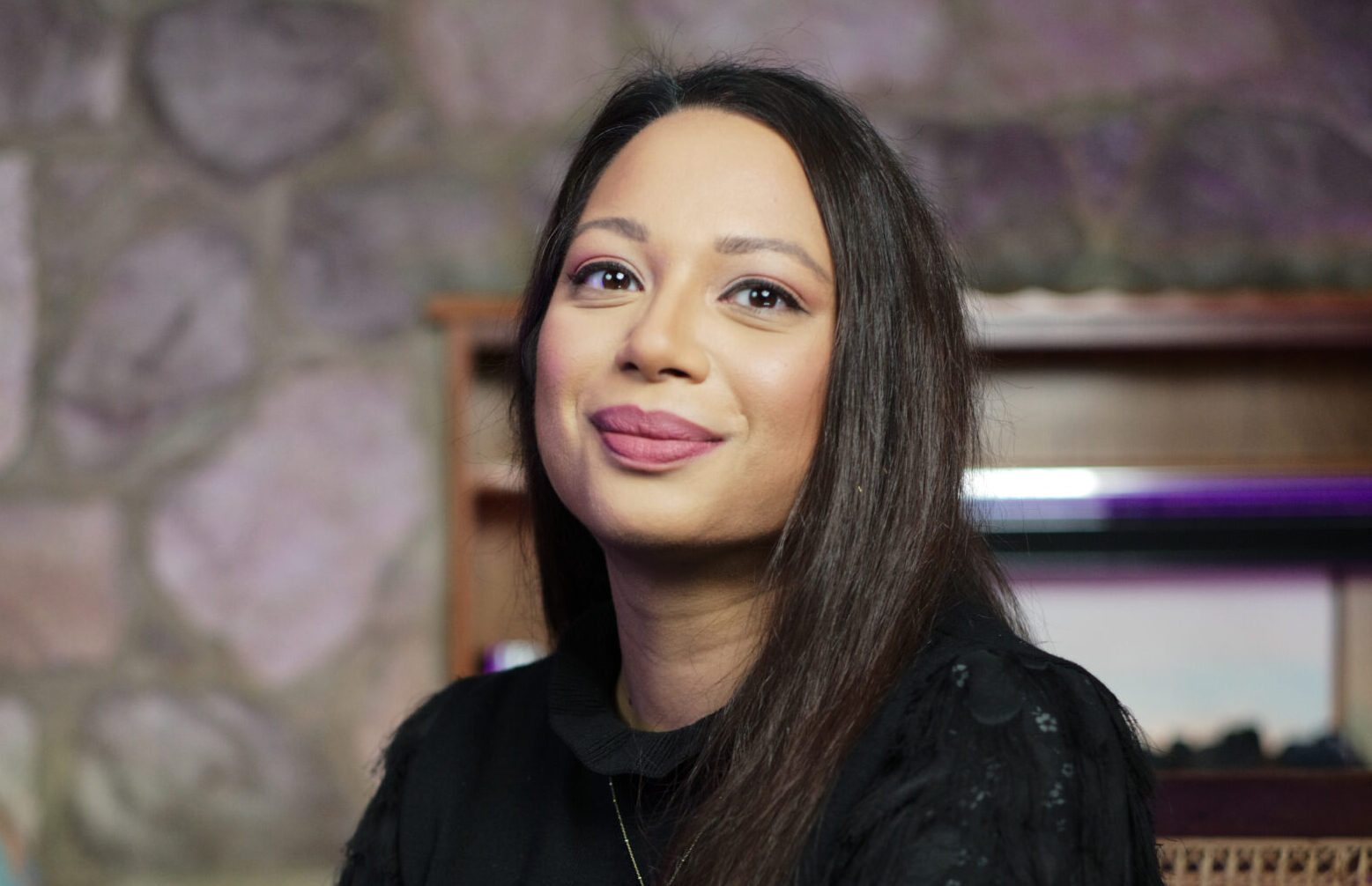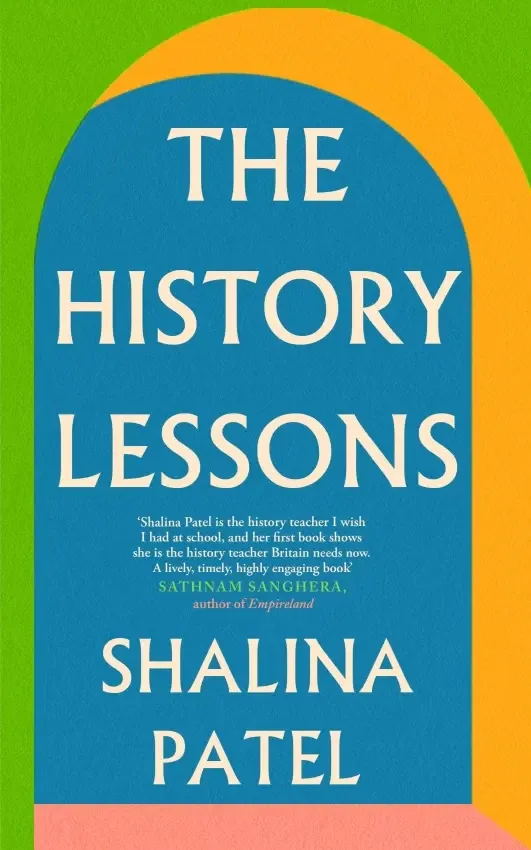- Saturday, July 27, 2024
Patel has spent the past 15 years teaching history at Claremont High School, a large mixed comprehensive school in west London, where she is also head of history.

By: Sarwar Alam
AUTHOR Shalina Patel said her own experience of not learning about the history she was interested in at school led her to write her new book, The History Lessons.
“I was really interested in Indian history. I was really interested in learning about empire, about different groups, women, for example. But we never really learnt about any of this when I was at school,” Patel told Eastern Eye.
“When I was choosing what university to go to (to study history), I really wanted to pick the things I wasn’t taught at school – I actually read a book about Gandhi which I included in my personal statement. I definitely had no idea that there were Indian soldiers in First World War, and Second World War until I went to university.”
Patel has spent the past 15 years teaching history at Claremont High School, a large mixed comprehensive school in west London, where she is also head of history.
Since 2019, she has trained hundreds of school leaders and teachers across the UK via the Outstanding Teacher Programme and spearheaded a new programme on decolonising education for primary and secondary schools, which has had huge uptake nationwide.
Patel won the Silver Pearson Teaching Award for teacher of the year in a secondary school in 2018 and the GG2 Inspire Award for Work in Education in 2020 – the latter was hosted by the Asian Media Group, publishers of Eastern Eye and Garavi Gujarat newsweeklies.
With The History Lessons, she looks at key stages in British history taught in the school curriculum, but casts a more “global lens” on it, reflecting on other important developments and prominent figures.
“The book goes in chronological order of what you are taught in school. It starts with the medieval world and the Battle of Hastings in 1066.
“It gives you a little reminder of what you learned about at school, but then it takes you on a different journey of what was going on in the world at the same time,” said Patel.
“It asks, ‘did you know that at the same time the Battle of Hastings was happening, this was happening in Africa? this was happening in Japan? There were these women in Britain you might not have heard about while we were talking about William the Conqueror?’
“There will be names, places and events you know about, but what the book does is uses that as a foundation to take you to unexpected people and places in those periods of time.”
The History Lessons has a south Asian narrative woven throughout, which was important for Patel because of her own background. Her family came to the UK from Gujarat, India via Kenya and Uganda.
She was keen for readers to see India before the British empire and get to know the rich history of the country.
“The first place that India and south Asian history come into the book is through the Mughals, because they reigned at the same time as the Tudors,” said Patel.

“When Elizabeth I reigned in Britain, Akbar the Great ruled in India. What I show is the similarities between them – such as their love of reading. I also draw parallels between Elizabeth and Nur Jahan, who was an empress, and their love of hunting.
“This time is important because that’s the first time that Britain starts to become interested in India. It gives context as to how the British rule came about.”
Other notable historical periods featured in the book include both world wars and the sacrifice of Indian soldiers, and the suffragette movement through the story of Sophia Duleep Singh.
“South Asian stories are in every chapter. It was really important for me to show that Britain and south Asia has got such a shared history. But a lot of the time, if it is talked about, it’s maybe just taught through maybe the figure of Gandhi, but not necessarily anything else.
“It’s important for people to know that the story is a lot longer and it’s a fascinating one as well,” she said.
Patel also looks at more contemporary issues such as south Asian migration to the UK in the decades after the end of the Second World War.
“A lot of people were taught at school about the American civil rights movement. My argument is, why don’t we learn about what happened in Britain after the Second World War when you had black and Asian migrants moving to Britain and fighting against discrimination?” said Patel.
“I talk about the Southall Youth Movement. There were racist murders at that time – Gurdip Singh Chaggar (an 18-yearold who was brutally stabbed to death on Southall High Street in 1976), for example. I talk about those amazing activists in the 1970s and 1980s that fought for the life that we are able to enjoy now.”
Patel feels a sense of responsibility to previous generations to ask questions about their culture and history as they are not burdened with the same “struggles”.
“I always think back to my dear friend, Kavita Puri (journalist and author), who did a great radio programme called Three Pounds in My Pocket for which she interviewed me, my dada and my mum. I remember that she said our generation have got the privilege of being able to ask these questions about our history and our cultural identity, because we don’t have to worry about the same kind of stuff our grandparents and our parents had to worry about,” she said.
“We’ve got the privilege of being able to question our ‘British Asianess’ and be able to merge those identities together and to question it, whereas for older generations, it was about assimilating into society, keeping your head down, just getting on with things and providing for their family – that was their priority.
“We’ve got more freedom because of what they built for us.”
With prominent British Asians figures in the arts and media, Patel believes there has been an “explosion” in awareness and understanding of south Asian culture for young people who have access to information at their fingertips. She hopes that The History Lessons leads to more people wanting to find out about their own family history.
“We talked about Partition earlier, there are so many people of our age who had grandparents or great grandparents who lived through that, but we weren’t able to ask them the questions about that history,” she said.
“I have my great grandfather’s passport, which is a British Indian passport that has a photo of him, which is really interesting. But we don’t know anything before that.
“A lot of the time, the difference between south Asian students, migrant students and white British students is that the white British students can say ‘my great granddad was a soldier in the war’ or ‘my grandma was a was a nurse in the war’, but generally we tend not to have those stories because of migration, a lot of the time.
“I say at the end of the book, I can’t set you homework, but if I was going to set you homework, it would be to find out your family story because everyone’s got their own history. In the south Asian community, the older generation, they’re often not going to offer those stories because they don’t think they’re important. We need to show them that their story is really important and are inspirational to us.”
The History Lessons by Shalina Patel (Icon Books) is out on May 9